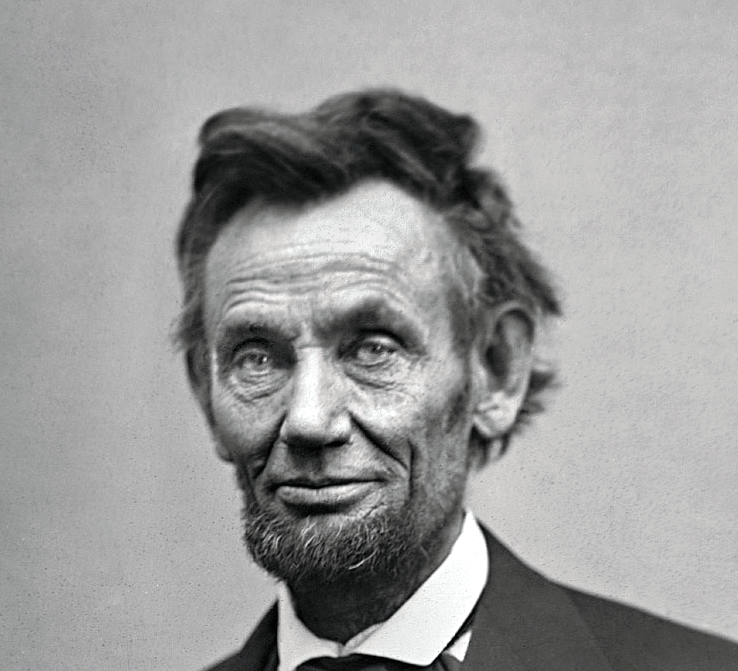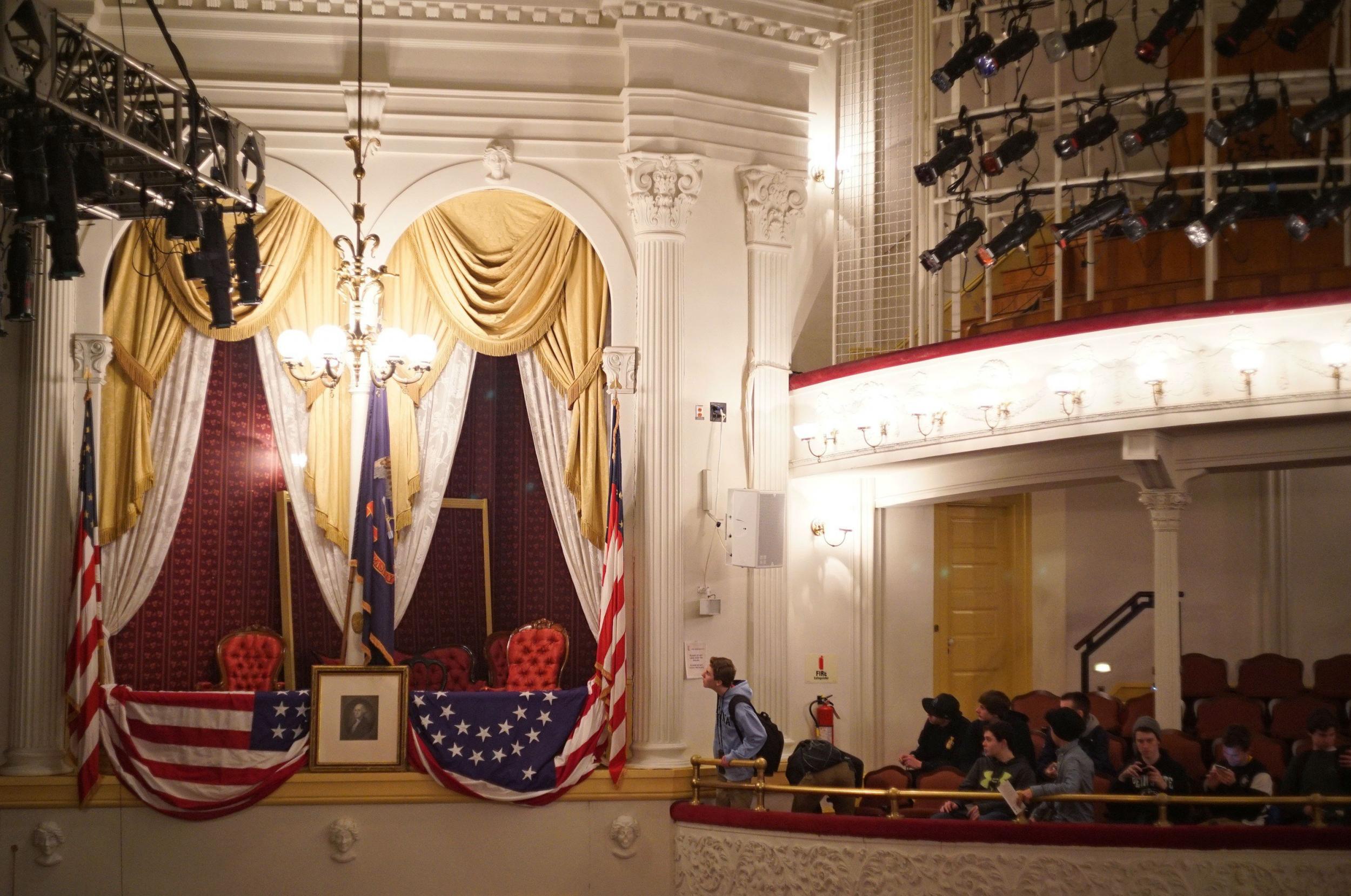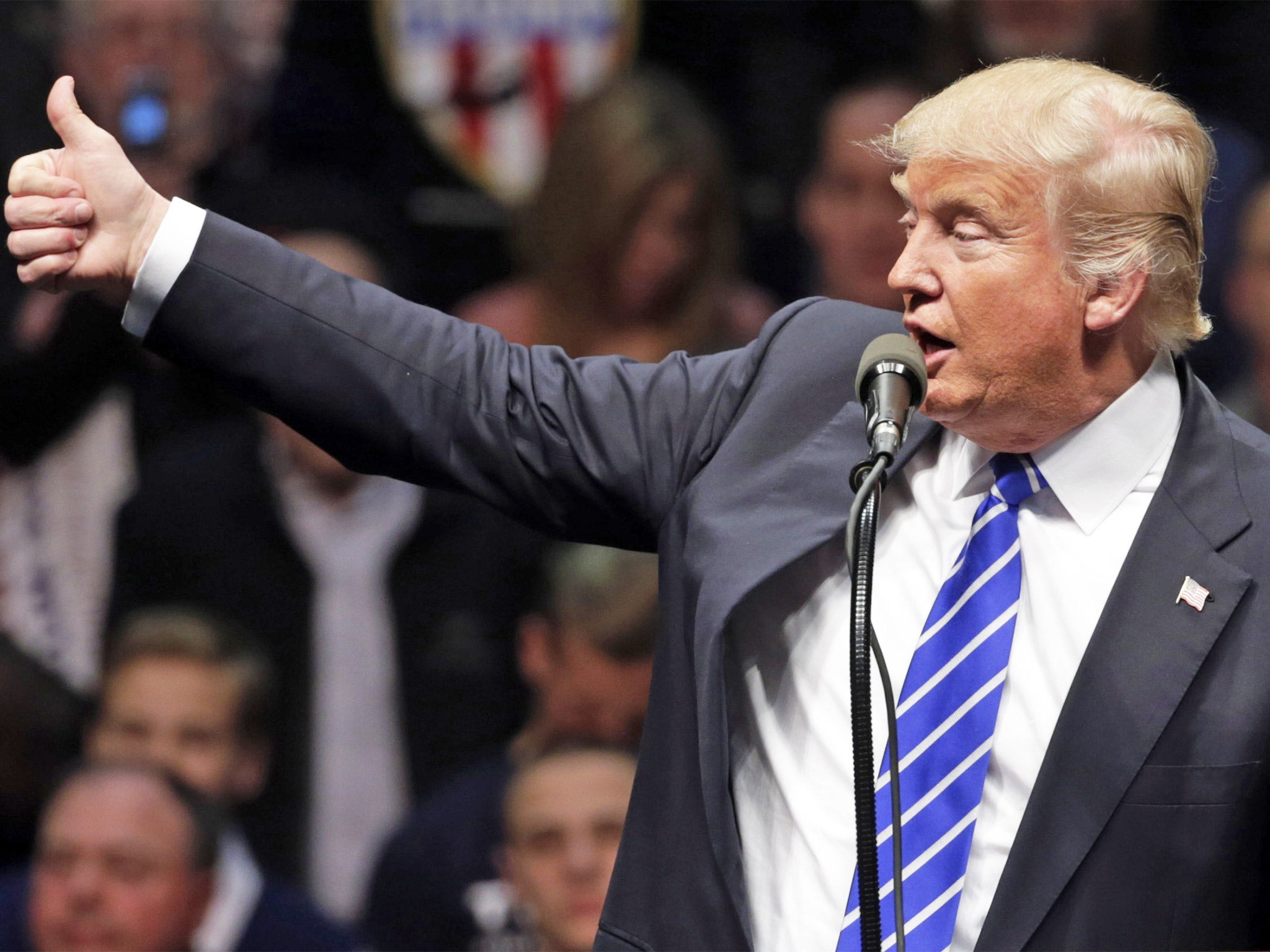Abraham Lincoln’s message to candidates from beyond the grave: 'Enough of this farce'
The 16th president of the United States was shot whilst he was enjoying a theatrical comedy - but would he enjoy the drama today?

Your support helps us to tell the story
From reproductive rights to climate change to Big Tech, The Independent is on the ground when the story is developing. Whether it's investigating the financials of Elon Musk's pro-Trump PAC or producing our latest documentary, 'The A Word', which shines a light on the American women fighting for reproductive rights, we know how important it is to parse out the facts from the messaging.
At such a critical moment in US history, we need reporters on the ground. Your donation allows us to keep sending journalists to speak to both sides of the story.
The Independent is trusted by Americans across the entire political spectrum. And unlike many other quality news outlets, we choose not to lock Americans out of our reporting and analysis with paywalls. We believe quality journalism should be available to everyone, paid for by those who can afford it.
Your support makes all the difference.On 14 April 1865, president Abraham Lincoln was enjoying a boisterous performance of “Our American Cousin”, a farce about a boorish but honest American who travels to England to meet his aristocratic family.
Little did Mr Lincoln know that the famous actor-turned-assassin John Wilkes Booth was waiting for the moment when the audience’s laughter would drown out the sound of his gun.
A century and a half later, in the run-up to the New York primary on 19 April, what would Mr Lincoln make of the farce playing out on the election stage today?
Michael Vorenberg, associate professor of history at Brown University, said any president prior to 1900, or even later, would view current candidates' behaviour as “inappropriate”.
“Despite being someone who could be crass and enjoy purple humour and was not above the occasional cutting remark, when it came to a presidential election, in public he was all about dignity and regarded the presidency as a distinguished office,” he told The Independent.
One character in the play, Mrs Mountchessington, says to the boorish protagonist: “I am aware, Mr Trenchard, you are not used to the manners of good society, and that, alone, will excuse the impertinence of which you have been found guilty.“
As soon as he retorts: “Don’t know the manners of good society, eh? Well, I guess I know enough to turn you inside out, old gal- you sockdologizing old man-trap”, Mr Wilkes Booth shot the 16th president of the United States in the back of the head.

Donald Trump, aka Donald Drumpf, has been singlehandedly accused of making Mr Lincoln’s Republican party “implode”.
A closer look at Asa Trenchard’s speech, as he tries to help Mrs Mountchessington’s daughter Augusta, bears striking resemblances to the character we all love to hate.
“[…] when I think what I’ve thrown away in hard cash today I’m apt to call myself some awful hard names, 400,000 dollars is a big pile for a man to light his cigar with. If that gal had only given me herself in exchange, it wouldn’t have been a bad bargain,” he says.
Mr Trump is the ultimate bargain hunter in America today, with his empire of skyscrapers, golf courses and hotels, and like Asa Trenchard, he inherited his fortune.
His rambling, racist rhetoric against Syrians, Muslims and Mexicans, his feud against women, his demolition of rent-controlled housing and the call for South Korea and Japan to obtain nuclear weapons are all examples of, as Mrs Mountchessington says, “bad manners”.
And in real life politics, the comedy and tragedy continues, with other candidates making cameos on the stage.

Texas Senator Ted Cruz has called for the racial profiling of Muslims and has bantered about the size of his rival’s genitals.
Democrat Hillary Clinton has been accused of dishing up classified information on her personal email server and has clashed with climate change activists.
Bernie Sanders, meanwhile, is calling for changes like the end of poverty and modern slavery - concepts that Mr Lincoln might well have hoped to achieve in the 151 years after his death - if he had been a more long-sighted visionary.
“This is the stuff Lincoln might have expected in a local election, but not in a national one,” said Mr Vorenberg. “The rough and tumble rhetoric, the personal references, the off-color humour, the poor taste of certain remarks. It’s happening all over the place."
Another character in the farce, Mr Trenchard’s daughter Florence, asks him, “What do you mean by doing all these dreadful things?”
Possibly the same question Ivanka Trump has asked her father.
But by the time Florence delivered this line in the Ford Theatre of Washington DC in 1865, Mr Lincoln had no time to ponder any presence of political metaphor.
He was already dead.
“Our American Cousin” finishes with a flourish - Asa Trenchard reveals himself, despite his flaws, to be a kind of hero, marrying the woman he loves and forcing others to change their ways. All the loose ties come together, everyone is happily married off.
Unfortunately the death of Mr Lincoln meant the play was cut short before the happy ending.
If Mr Trump enters the White House, will he really punish women who get abortions? Will he really deport millions of people? Or will he realize the error of his ways?
Haunted by the spirit of Mr Trenchard, now embodied in the yellow-haired real estate mogul, Mr Lincoln, his Republicans and the rest of the world await the final curtain call on 8 November.
Join our commenting forum
Join thought-provoking conversations, follow other Independent readers and see their replies
Comments